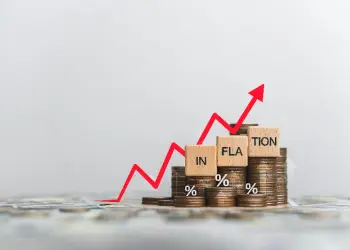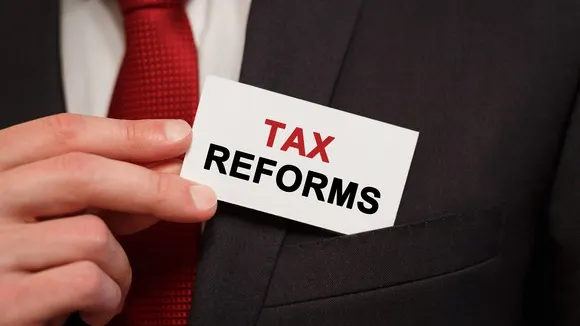The cryptocurrency market continues to evolve, with new technologies and financial products driving mass adoption. In 2025, key trends such as Bitcoin ETFs, AI integration, Layer 2 scaling solutions, and institutional investments are set to transform the digital asset landscape.
Explore the biggest cryptocurrency trends shaping 2025, from Bitcoin ETFs to AI-powered blockchain innovations.
Introduction: The Rapid Evolution of Crypto in 2025
Cryptocurrency has come a long way since the launch of Bitcoin in 2009. From decentralized finance (DeFi) to non-fungible tokens (NFTs), the industry has undergone significant transformation. In 2025, several new trends are shaping the future of digital assets, including regulatory developments, innovative blockchain use cases, and increased mainstream adoption.
Bitcoin ETFs & Institutional Adoption
One of the biggest shifts in 2025 is the rise of Bitcoin ETFs (Exchange-Traded Funds). These investment products allow traditional investors to gain exposure to Bitcoin without directly holding the asset. With major financial institutions launching their own Bitcoin ETFs, institutional adoption is at an all-time high, driving liquidity and price stability in the market.
AI-Powered Blockchain Solutions
Artificial intelligence (AI) is merging with blockchain technology to enhance automation, security, and scalability. Projects like Fetch.ai (FET) and SingularityNET (AGIX) are leading the way, offering decentralized AI solutions that optimize financial transactions, supply chains, and smart contracts. This trend is expected to revolutionize various industries, from healthcare to finance.
Layer 2 Scaling Solutions for Faster Transactions
With the increasing demand for blockchain networks, Layer 2 scaling solutions like Ethereum’s Optimism and Arbitrum are becoming essential. These protocols reduce transaction fees and improve network speed, making blockchain applications more efficient and user-friendly. Other networks, such as the Lightning Network for Bitcoin and Solana’s high-speed blockchain, are also enhancing scalability in 2025.
The Growth of Web3 & Decentralized Applications (dApps)
Web3 represents the next evolution of the internet, emphasizing decentralization and user ownership. Platforms like Ethereum, Polkadot, and Avalanche are leading the Web3 movement by enabling developers to create decentralized applications (dApps) in industries such as finance, gaming, and content creation. Web3 wallets and decentralized identity solutions are also gaining traction, offering users greater control over their digital assets and data.
The Rise of Central Bank Digital Currencies (CBDCs)
Governments worldwide are exploring Central Bank Digital Currencies (CBDCs) to modernize the financial system. Countries like China, the U.S., and the European Union are actively testing digital versions of their national currencies. While CBDCs promise faster transactions and improved monetary control, they also raise concerns about privacy and financial surveillance.
NFT Utility Beyond Digital Art
While non-fungible tokens (NFTs) initially gained popularity for digital art, their use cases are expanding in 2025. NFTs are now being utilized for real-world applications such as ticketing, real estate ownership, and supply chain tracking. Brands and businesses are integrating NFTs into their loyalty programs and virtual experiences, creating new revenue streams and consumer engagement strategies.
Sustainable & Green Cryptocurrencies
Environmental concerns surrounding blockchain technology have led to the rise of sustainable cryptocurrencies. Proof-of-Stake (PoS) networks like Ethereum, Cardano, and Algorand are significantly reducing energy consumption compared to Proof-of-Work (PoW) blockchains. Additionally, projects like Chia (XCH) and Nano (NANO) are developing eco-friendly blockchain solutions that prioritize sustainability without compromising efficiency.
Enhanced Crypto Regulation & Compliance
Regulatory clarity is a key focus in 2025, as governments worldwide establish clear frameworks for cryptocurrency taxation, anti-money laundering (AML) policies, and security measures. While some regions are embracing crypto-friendly regulations, others are imposing stricter laws to protect investors from fraud and market manipulation. Increased compliance standards are expected to boost investor confidence and mainstream adoption.
The Expansion of the Metaverse & Virtual Economies
The metaverse is becoming a multi-billion-dollar industry, with blockchain-powered virtual economies leading the way. Projects like The Sandbox (SAND) and Decentraland (MANA) are expanding their ecosystems by offering virtual real estate, gaming experiences, and digital marketplaces. The integration of VR, AI, and crypto payments within the metaverse is reshaping how people interact and conduct business online.
The Future of Cryptocurrency in 2025 & Beyond
The cryptocurrency industry is evolving at a rapid pace, with new innovations and regulatory advancements shaping its future. From Bitcoin ETFs and AI-powered blockchains to Web3 applications and green crypto solutions, 2025 presents exciting investment opportunities for crypto enthusiasts. Staying informed about these trends will be crucial for making smart investment decisions in the digital asset space.




























